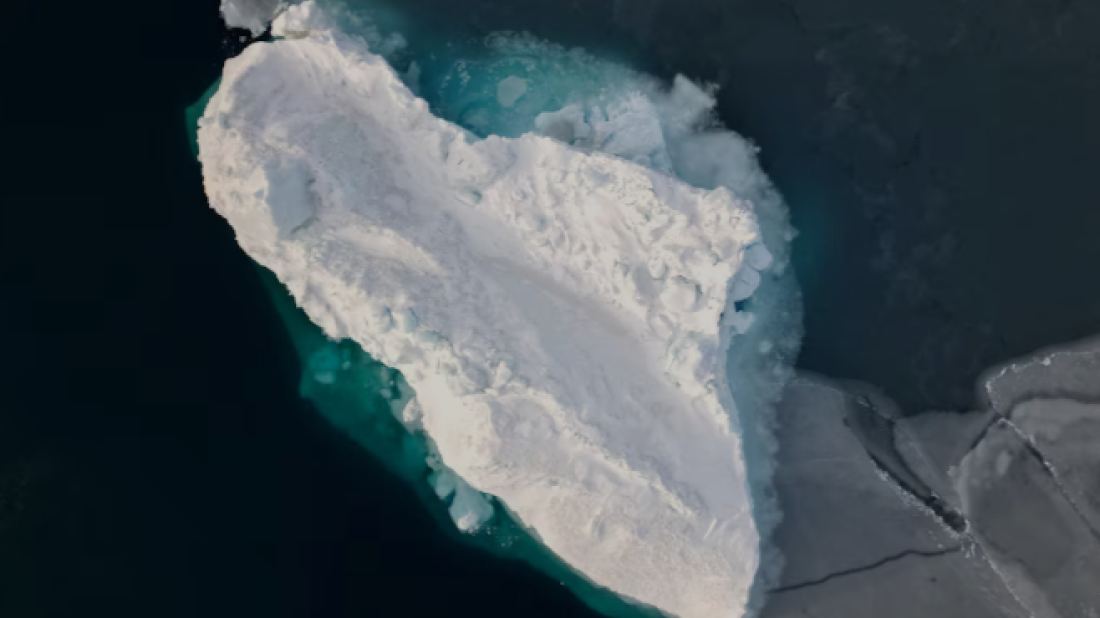U.S. Secretary of State Rubio says U.S. and Europe 'belong together' at Munich Security Conference
“The United States and Europe, we belong together,” Marco Rubio declared on the second day of the Munich Security Conference on Saturday (14 Febru...

Record greenhouse gas levels in 2024 have driven global temperatures to an all-time high, accelerating the loss of glaciers and sea ice, raising sea levels, and bringing the world closer to a key climate threshold, according to the World Meteorological Organization (WMO).
Record greenhouse gas levels pushed temperatures to an unprecedented high in 2024, accelerating the loss of glaciers and sea ice, raising sea levels, and edging the world closer to a critical climate threshold, according to the World Meteorological Organization (WMO).
The WMO’s annual climate report revealed that global average temperatures in 2024 were 1.55°C (2.79°F) above pre-industrial levels, surpassing the previous 2023 record by 0.1°C. This puts the world perilously close to exceeding the 1.5°C temperature increase limit set by the 2015 Paris Agreement. While various factors, including a shift in the solar cycle, a significant volcanic eruption, and a reduction in cooling aerosols, contributed to last year’s temperature spike, the primary driver remains the record levels of greenhouse gas emissions.
The report highlighted the dire consequences of these temperature increases, with extreme weather events causing widespread devastation. Droughts led to severe food shortages, while floods and wildfires displaced over 800,000 people—the highest number since records began in 2008.
Meanwhile, ocean heat reached its highest recorded levels, with warming rates accelerating. Rising carbon dioxide concentrations in the ocean also contributed to increasing acidification, further threatening marine life.
The accelerated melting of glaciers and sea ice pushed sea levels to a new high. From 2015 to 2024, sea levels rose by an average of 4.7 millimeters per year—more than double the 2.1 millimeters annually recorded between 1993 and 2002, according to WMO data.
John Kennedy, WMO’s scientific coordinator, also warned of the broader, long-term impacts of the melting ice in polar regions. “Changes in those areas could influence global ocean circulation patterns, which in turn can affect global climate,” he explained. "What happens in the poles doesn’t stay at the poles."
While preliminary estimates suggest the long-term average temperature increase is between 1.34°C and 1.41°C, bringing the world close to the Paris target, the WMO clarified that a single year exceeding 1.5°C does not necessarily indicate a breach of the Paris Agreement threshold. However, due to uncertainty in the data, it cannot be completely ruled out, Kennedy said during a briefing.
Europe heads into the Munich Security Conference, on Friday (13 February), amid deepening unease over U.S. policy, as President Donald Trump’s hard-line stance on defence, trade and territory fuels doubts about Washington’s long-term commitment to transatlantic security.
American figure skating star Ilia Malinin endured a dramatic collapse in the men’s free skate on Friday night, falling twice and tumbling out of medal contention at the Milan Cortina Winter Olympics as Kazakhstan’s Mikhail Shaidorov surged to a surprise gold medal.
“Respected and feared globally,” U.S. President Donald Trump told troops at Fort Bragg on Friday, framing America’s renewed strength as a backdrop to mounting pressure on Iran amid stalled nuclear talks.
Dubai-based global ports operator DP World said on Friday that its long-serving chairman and chief executive, Sultan Ahmed Bin Sulayem, has stepped down following mounting pressure linked to alleged ties to disgraced financier Jeffrey Epstein.
Azerbaijan’s State Security Service has filed charges against a group of people accused of belonging to a criminal network alleged to have attempted to forcibly seize state power. It's claimed they tried to alter the constitutional structure, with the support of foreign intelligence agencies.
The administration of U.S. President Donald Trump on Thursday (12 February) announced the repeal of a scientific finding that greenhouse gas emissions endanger human health, and eliminated federal tailpipe emissions standards for cars and trucks.
Tropical Cyclone Gezani has killed at least 31 people and left four others missing after tearing through eastern Madagascar, the government said on Wednesday, with the island nation’s second-largest city bearing the brunt of the destruction.
Rivers and reservoirs across Spain and Portugal were on the verge of overflowing on Wednesday as a new weather front pounded the Iberian peninsula, compounding damage from last week's Storm Kristin.
Morocco has evacuated more than 100,000 people from four provinces after heavy rainfall triggered flash floods across several northern regions, the Interior Ministry said on Wednesday.
Greenland registered its warmest January on record, sharpening concerns over how fast-rising Arctic temperatures are reshaping core parts of the island’s economy.
You can download the AnewZ application from Play Store and the App Store.

What is your opinion on this topic?
Leave the first comment